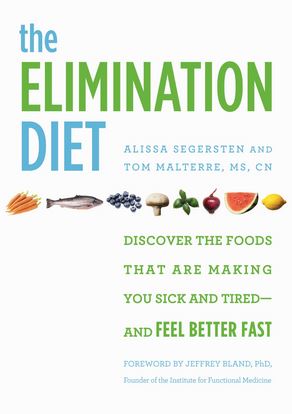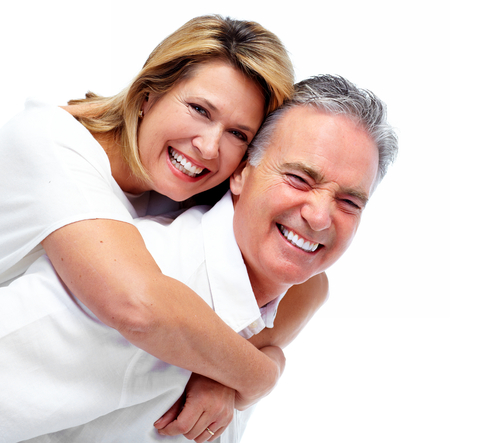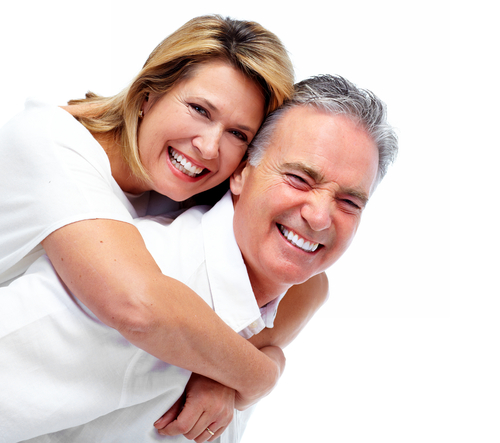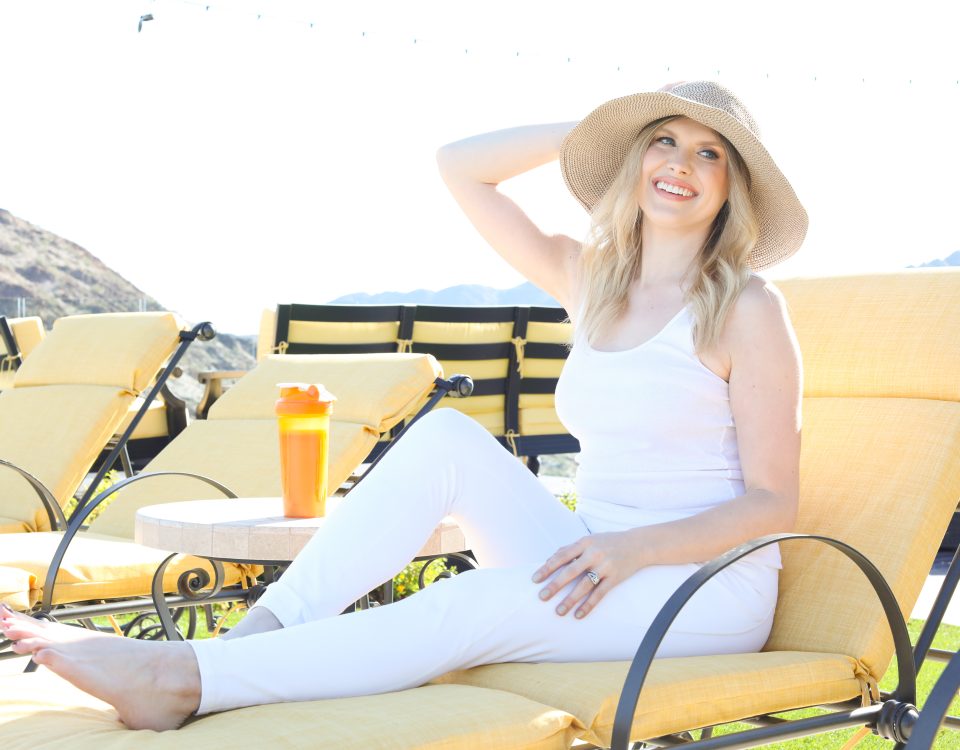Dr. C: We’re on! I have Dr. Geo Espinosa with us here today, and I am really excited. Geo is a friend, and he is the foremost authority on this whole integrated world of men’s health, which he pretty much created. That is a great thing, as we really have a need for that. I wanted Dr. Geo to come on and talk about some things you might want to know about your man and his health. What is affecting his health with age? Dr. Geo has a very busy clinical practice, so if we can take about 10 minutes to talk about three big points, it will be perfect. Let’s talk about what we should be aware of in terms of andropause or prostate health and anything important pertaining to male aging. So, Dr. Geo what do you have to say to us?
- Have any questions?
- 480-631-7837
- support@in-goodhealth.com

The Elimination Diet with Tom Malterre
April 10, 2023
How To Improve Cortisol Function
April 16, 2023
The Elimination Diet with Tom Malterre
April 10, 2023
How To Improve Cortisol Function
April 16, 2023
Dr. Geo: Well, first of all, thank you for having me. It is a real honor to be a guest on your podcast. So, thank you once again. Generally, I think men go through a lot of changes as they age. Men go through a lot of changes even when they do not age, just like kids and teenagers and so forth. Certainly, as men get older (I do not know if andropause is the exact clinical term), their testosterone level dips after the age of 30. Let’s say you have a man who lives a certain lifestyle that is not too active, and he does not really look at what he eats and so forth. His testosterone dips about .5% to 1% every year.
Dr. C: So, age 30 is when that really starts to change, huh?
Dr. Geo: Thirties, yep. Then, it starts to really change after 40, 45, 50, etc. So, if men aren’t careful, as they get older, you see potbellies. You see man-boobs. You see gynecomastia. You see them getting weaker. There is this great book out there, called MANTHOLOGY. The message here is that, compared to a thousand years ago, any man from this day and age would be so weak that he would get beat up by any woman. That is kind of what is happening now. I do not know if you looked at my Facebook page, but I took a picture of the cover of this month’s issue of “Muscle and Fitness.” This is not something I read, but I do look at covers. They had Vince McMahon, who is the CEO of the WWE and is almost 70-years-old, looking completely more muscular than most 25-year-olds. I think he is taking some enhancements. I think he is on growth hormones and maybe, some testosterone. I can’t prove that, but I see quite enough men who look like that, and they are taking them. He works out a couple days a week and so forth. As men age, I do think they are able to slow down the aging process. They are able to keep testosterone at decent levels, but there are things they need to do. Well, what also starts happening at age 30 is men have more responsibilities. You have to take care of the family. You start having kids, job situations and career moves. Increased stress means higher cortisol, which means less testosterone. So, I do not know if this whole idea of men losing more testosterone at the age of 30 is natural or if it is just part of certain lifestyles and behaviors we create.
Dr. C: That is a big point. I have heard some argue about it being just this predetermined thing we can’t get away from, but you have looked at this very closely. You are an expert, and you are saying it is more of an accumulative effect of our lifestyle and habits than it is some biological switch that flips it.
Dr. Geo: Let me share with you my personal story. When I turned 40, I did feel a little less zip in my own step. If I were my own doctor, I would probably say, “Yeah, my testosterone levels probably took a dip.” Well, what happened at 40 was career moves, and I had the wonderful opportunity of having a third child. So, now I am 40, and I am also getting up all night with the kid. I am not sleeping as well, and my stress levels are higher. I am not working out as much. So, a blood test determined I had low testosterone levels. I turned that around six months later, once I got back into my regiment, and my testosterone levels are higher than when I was 37 or 38. Now, that is the end of my own story, but I do see that in patients, as well. So, yes, I do think that if men do the right things (and we can have a full discussion on what the right things are), they will stay above hypogonadism and low testosterone levels and be vibrant and youthful as they get older.
Dr. C: That is wonderful. You made so many amazing statements, and we will have to have you back on and get some more insight. One great statement was just how this whole stress response and cortisol thing is kind of like the antithesis of testosterone, and one of the main things that drives it down.
Dr. Geo: You know, there is one phrase that resonates with my patients and physicians, and it is probably tweetable. That one phrase is “cortisol castrates.”
Dr. C: Wow, cortisol castrates. That’s powerful stuff.
Dr. Geo: Absolutely. There is no question in my mind. You look at cortisol levels, and you look at testosterone, and oftentimes, high cortisol levels equal low testosterone levels. This is the case more often than not.

Dr. C: So, you could get as much bang for your buck meditating as you could taking testosterone.
Dr. Geo: Absolutely, and I will take it one step further, Alan. I am here in New York, and I have a New York clinic. New Yorkers are notorious for being stressed out of their minds. Then, on top of that, you have the fact that they are into marathon running or CrossFit and things like that. So, not only are they stressed out of their minds, but they are Type A personalities, and they are not sleeping enough. I am fine with all of these things, but this type of individual, who already has high cortisol levels, can’t or should not, at least temporarily, participate in things like marathon running or CrossFit. While those are great exercises, they are not for everyone. So, what happens is they stress out, and their body stresses out even more, and cortisol levels go even higher, and they do not have the zip they are looking for. They are really running on adrenaline and not natural energy.
Dr. C: So, what are the three, biggest points for men (or for women to guide their men) to help them really get that zip back again? What three things make the most difference?
Dr. Geo: I would say sleep is really important because men really make most of their testosterone during their sleep cycles. So, if they do not sleep well, it is very difficult to make enough testosterone. Sleep does not have to be eight hours a day. I mean, in New York, who sleeps eight hours a day anyway? Almost no one, right? It does not have to be. Actually, really long, big studies show that about 7.2 hours a night is sufficient. For some people, even 6.5 hours. I remember when I went to naturopathic school, some practitioners would say the longer you sleep, the better: “Ten hours of sleep is better than eight. Sleep, sleep, sleep.” Well, you know, you have to not only be holistic, but also realistic.
Dr. Geo: I mean, seriously, who is going to sleep 10 hours a night? Are we supposed to get things done? What I try to do, from a holistic perspective, is determine what the lowest, therapeutic dose is that we need with sleep, meditation, broccoli, vitamin B and with everything. We can do that. Most people can do that. With sleep, it’s about 6.5 to 7.2 hours a night. Some men would pride themselves by thinking, “Hey, I can do five hours a night.” “I only need four hours, and I’ll be good.” That is not true. That is definitely not true. Although research shows there is a genetic component where very few people can get away with four or five hours, all in all, people (particularly men) need between 6.5 and 7.2 to even make enough testosterone.
Dr. C: So, sleep is number one, and you need somewhere around seven hours, maybe a little more or a little less, but it sounds like seven is a good target.
Dr. Geo: Yes, that is about average.
Dr. C: How about the next one?
Dr. Geo: The next one is taking care of your adrenal glands. The adrenal glands sit right on top of the kidneys. These glands produce different neurotransmitters, hormones and particularly, that chemical we spoke about before that castrates: cortisol. So, anything that nourishes the adrenal glands would be a good thing, particularly in men that are overly stressed. That could be a whole segment and a full discussion, and actually, you are the expert. Many men should read your ADRENAL RESET DIET book. There are a couple things I do like. Vitamin C is very important. Most people take vitamin C for colds and flu prevention, but vitamin C does so many things for you, including nourishing your adrenal glands. Adaptogenic herbs are very important. These are herbs that balance out the body if you have too much of any one thing, and they help with stress very nicely. There are many. There is astragalus and Siberian ginseng. My absolute favorite, particularly for men, is rhodiola. I am a big fan of rhodiola. I take it. It works wonders, and I think it is very important not only for adrenal fatigue and adrenal nourishment, but even vitality. It helps with mental energy and when you’re exhausted from working so much. It even helps in the bedroom. So, it not only helps in the boardroom but in the bedroom, as well.
Dr. C: So, number two would be to nourish the adrenals and rhodiola is one of your favorite ways to do that. Let’s give our listeners one more, as a big wrap-up, for our number three.
Dr. Geo: Number three is the right type of exercise. I am not just saying “exercise,” but I am saying the right type of exercise for you. I am a CrossFit guy. I love running and sprints and doing CrossFit. I would love to say it’s the greatest thing for everyone, but it is not. So, find the right type of exercise for you, and it has to be personalized. Some people may do better with yoga and tai chi, while others may do better with running marathons or weightlifting or things like CrossFit. So, you need to figure that out, and I would think you should see a practitioner. Let’s say you want to do it by yourself and figure it out by yourself. Okay, fine. Your body tells you. If you are just in tune with your body, your body tells you “Hey, you know what? I ran that marathon, and I did not get sick. I actually felt good after running that marathon,” or “I felt horrible and was sick for two weeks after running a marathon.” It’s the same thing with CrossFit, weightlifting and anything else.
Dr. C: So, exercise and be flexible about your exercise.
Dr. Geo: Exercising intelligently.
Dr. C: That is awesome, and I know you have a busy practice there, but we are going to have you back on real soon and get into more depth on all these issues. This is a lot of fun.
Dr. Geo: Yeah, I am ready. Just let me know. We can do five of these if you want. Whatever you want.
Dr. C: Sounds perfect. Thanks for being on, Dr. Geo.
Dr. Geo: Alright, Alan. Thank you so much.
Dr. C: That sounds like another tweetable!

P.S. Whenever you are ready, here is how I can help you now:
- Schedule a Thyroid Second Opinion with me, Dr. C, Click Here for Details
- Need help to choose supplements? Click ‘Help Me Decide Here'
- Get my top books Here
Dr. Alan Glen Christianson (Dr. C) is a Naturopathic Endocrinologist and the author of The NY Times bestselling Hormone Healing Cookbook, The Metabolism Reset Diet, and The Thyroid Reset Diet.
Dr. C’s gift for figuring out what works has helped hundreds of thousands reverse thyroid disease, heal their adrenals, and lose weight naturally. Learn more about the surprising story that started his quest.







